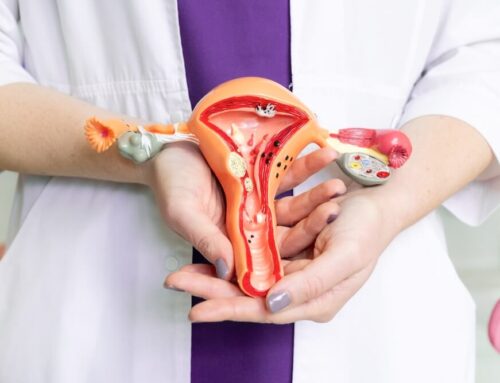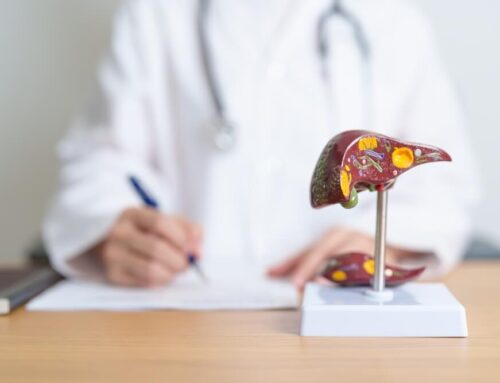Pregnancy should be a time in your life when you are focusing on your health and your future baby. It is okay if you feel a bit overwhelmed, but some things you can’t control, and therefore you shouldn’t worry about them.
Nevertheless, it would help if you educated yourself about certain things that can happen, like early labor and preterm labor symptoms. And by doing that, you will ease your mind because you’ll learn that preterm labor doesn’t have to lead to premature birth.
In this article, professionals from Trogolo Obstetrics and Gynecology in Jacksonville will share information about early labor, signs of early labor, and everything you need to know about this topic.
What Is Premature Labor?
Commonly childbirth occurs after the 37th week of gestation; however, 10% of women experience premature labor. Any baby delivery that occurs after the 20th week and before the 37th is considered preterm and can result in premature birth. However, not every early labor results in preterm birth.
If the labor starts earlier in the pregnancy, closer to week 20, and ends up in early birth, the baby is exposed to many health risks, such as mental and physical disabilities.
The Causes for Preterm Labor

The actual causes of early labor are unknown, and scientists are still trying to find the reason behind it. Nonetheless, specific actions and conditions can upsurge the chances of premature labor, and we will talk about them now.
- Smoking
- Drug use
- Being over the age of 35
- Having twins or multiples
- Having problems with high blood pressure
- Diabetes
- Having a short cervix
- Having another pregnancy less than six months after giving birth
- Getting an infection
- Problems with placenta
- Stress
- Depression
- Vaginal bleeding
If you had experience with anything mentioned above or are currently having, you should talk to your OB-GYN for more advice on taking care of yourself during your pregnancy.
Preterm Labor Symptoms
There are a few signs of early labor that you can quickly notice, and they can happen anytime from week 20 to week 37.
- Regular contractions
- Cramps
- Pain in the lower back
- Pressure in the pelvic and abdominal region
- Light bleeding
- Non-typical vaginal discharge
- Preterm water breaking
If you experience any of these signs of early labor, you shouldn’t ignore them and immediately contact your healthcare provider.
Possible Complications of Premature Labor
As mentioned, preterm labor can lead to delivering the baby ahead of time. There are numerous health risks for the baby if that happens, such as underdeveloped organs, problems with breathing, vision, and low weight. There’s also a risk of developing cerebral palsy and having learning disabilities in the future life.
Can You Stop Preterm Labor?
If you get diagnosed with preterm labor, you can’t completely stop it. However, you can slow it down.
In a situation like this, it is essential to stay calm and rest as much as possible. In most cases, a medication that relaxes the uterine muscles is prescribed to help slow down the process and contractions.
There are cases where preterm labor symptoms stop, the cervix stops diluting, and women can safely go home and wait for their term. Some may think it has to do with the medication given, while others think it is just a natural process.
Can You Prevent Early Labor?
Many are wondering if there is any way in which you can prevent premature labor, and unfortunately, there isn’t. If you start experiencing any symptoms, you shouldn’t think and stress out about the reason behind it.
Many women are blaming themselves, causing significant stress, which isn’t doing anything good for the overall health of the mother and the baby. That’s why you should relax as much as possible, and know that it’s not your fault if something like this happens.
Still, there are some things that you can do during the gestation period that can significantly lower the chances of premature birth and give you a chance of having a wonderful and healthy pregnancy.
You need to take care of yourself; by doing that, you are also taking care of your unborn child.
Prenatal Care
The first and most essential thing is to seek prenatal care as soon as you find out you are pregnant. Prenatal care should be regular and performed in a well-known, professional clinic. You can talk with your healthcare provider about anything that comes to your mind and everything that causes you to worry. You can ask questions, seek advice and tell them anything that’s happening to you, from typical gestation symptoms to those you are unfamiliar with. Remember that you shouldn’t hide anything from your OB-GYN as they should be your best friend during these nine months. You must be honest about your prior behaviors, habits, chronic conditions, and health problems during this time. You can, and you should tell them everything, so they can help you in the best possible way and give you and your baby the care you deserve.
Avoid Having Bad Habits
It is well-known that you shouldn’t be using harmful substances during pregnancy, but mentioning them a few more times is also good. We know that it is not easy to stay away from what you have been doing for such a long time, for example, smoking, but if you want a healthy and happy baby, you should quit it. The same goes for alcohol and any illegal drugs.
Include Good Habits into Your Routine
Light exercising, prenatal yoga, and walking daily are great ways to keep yourself physically and mentally fit. And by doing that, you increase the chances of a healthy pregnancy without complications.
A Healthy Diet Is the Key

The best way to keep yourself healthy and your future child is to include fresh and healthy food into your diet and to take care of your nutrition. Often people forget about how important the diet is, but you should remember that you are what you eat. Focus on fresh produce and foods without preservatives and added sugars. We know that pregnancy cravings can be crazy, but you should avoid fast food with excessive fat and sugar. You can eat something that you crave from time to time, a snack, something sweet, but emphasize nuts, fruits, and vegetables when it comes to snacking.
Pregnancy Spacing
The last thing we want to mention is pregnancy spacing. If you get pregnant less than six months after you gave birth, it can end up in preterm labor. If you want to know more about this topic, you should talk to your obstetrician.
Find the Best Prenatal Care
If you want to know more about prenatal care and what you can do to have a healthy pregnancy, professionals from obstetric care in Jacksonville can help you.
Here at Trogolo Obstetrics and Gynecology, our primary goal is to help and support women with their reproductive health. So, if you have any doubts, contact us today, and book your appointment. We would be happy to see you and assist you.





